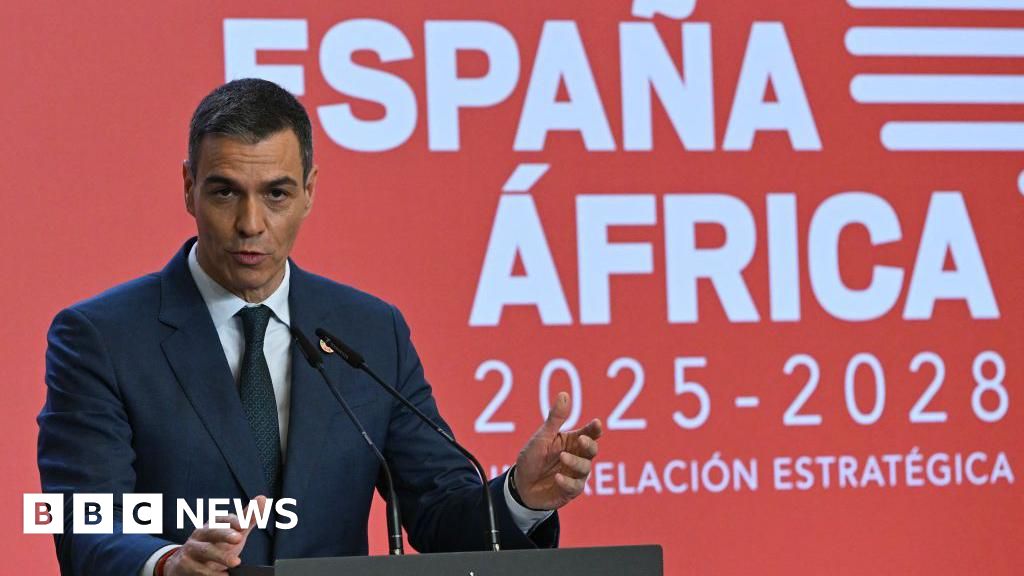Spain’s Unique Stance on African Engagement and Migration
A Divergent Path in Migration Policy
Spain stands out amidst a global shift in Western nations toward stricter migration policies. While countries like the US, UK, France, and Germany are cutting back on development aid, Spain is pursuing a path of expansion and engagement. The Spanish government’s current approach reflects a commitment to fostering connections with Africa, a neighboring continent, that is often overlooked in the broader political conversation surrounding migration.
The AfroMadrid2025 Conference
Recently, Madrid hosted an African Union-backed world conference on people of African descent, dubbed AfroMadrid2025. This event focused on critical discussions around restorative justice and the establishment of a new development fund to support African communities. Such initiatives showcase the Spanish government’s proactive stance in deepening ties and promoting cooperative relationships with African nations.
Strengthening Diplomatic Ties
Foreign Minister José Manuel Albares has been actively overseeing the implementation of the Spain-Africa strategy. Launched in late 2022, the strategy outlines a series of initiatives aimed at improving diplomatic and cultural relations between Spain and various African nations. A notable measure has been the formation of an advisory council populated by prominent figures—over half of whom are African—to keep the government accountable for its commitments.
New Embassies and Educational Partnerships
As part of this strategic engagement, Spain plans to establish new embassies in African countries and to foster partnerships in business and education. Such commitments highlight the government’s emphasis on long-term collaboration rather than merely transactional relationships.
Migration: Challenges and Opportunities
Migration remains a contentious issue, and Spain’s approach diverges from many other European countries, especially in its tone. As Prime Minister Pedro Sanchez seeks to manage the influx of irregular migrants, he finds himself navigating electoral pressures from right-wing parties, notably Vox, which have successfully capitalized on public concerns regarding migration.
The Reality of Migrant Arrivals
In 2022, over 45,000 people undertook the perilous journey from West Africa to the Canary Islands, with thousands more attempting shorter crossings to Spain’s mainland. Tragically, estimates suggest that between 1,400 and 10,460 migrants lost their lives during these attempts. The Spanish government faces the dual challenge of processing these arrivals while ensuring their integration into society.
Developing Constructive Solutions
Recognizing the economic realities driving migration, the Sanchez government pursues a more constructive tone compared to the prevailing narratives in other European capitals. Instead of merely closing borders, Spain is seeking to craft “safe, orderly, and regular” migration pathways. This involves facilitating movements that benefit both Spanish and African economies.
Economic Contributions of Migrants
Sanchez has publicly acknowledged the contributions migrants make to Spain’s economy. His administration funds training programs for young Africans, particularly those who have been repatriated, to help them build livelihoods in their home countries. A circular migration scheme allows West Africans to work temporarily in Spain’s agricultural sector before returning home.
Broadened Strategic Focus
Spain’s foreign policy has shifted significantly to embrace a broader engagement with Africa, moving beyond its historical focus on Latin America. In his role, Albares has emphasized not only traditional areas such as security and economic development but also the importance of youth employment and education for African nations.
Cultural and Educational Initiatives
The Spanish government is expanding its cultural footprint through initiatives like enhancing the presence of the Cervantes Institute and promoting the Spanish language across Africa. Moreover, it aims to facilitate the movement of academic professionals and researchers between Spain and African countries.
Upholding Democratic Values
Spain’s Africa strategy places strong emphasis on supporting democratic principles, cooperation with the African Union, and engagement with regional organizations like ECOWAS. This endeavor is particularly crucial amidst the current challenges faced by these organizations, which have seen a decline in compliance with democratic protocols among certain member states.
Anti-Racism and Support for the African Diaspora
In a bid to combat racism and xenophobia domestically, Spain is intent on supporting its African diaspora. This focus ties into the global narrative of promoting inclusivity and equality, especially within contemporary discussions around migration and integration.
Through these initiatives and policies, Spain is carving out a distinct, human-centered approach in its relationship with Africa, positioning itself as a potential leader in fostering cooperative, mutually beneficial ties.



